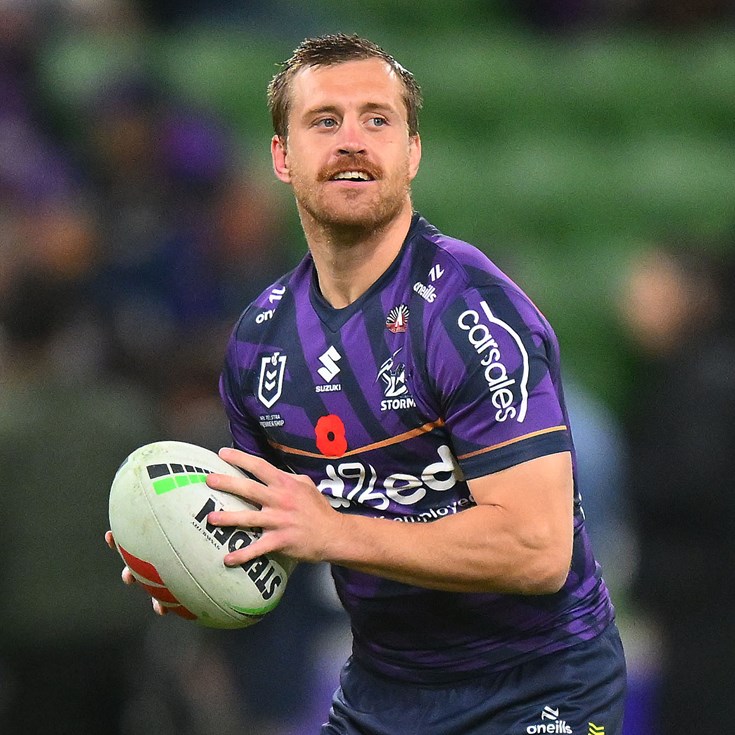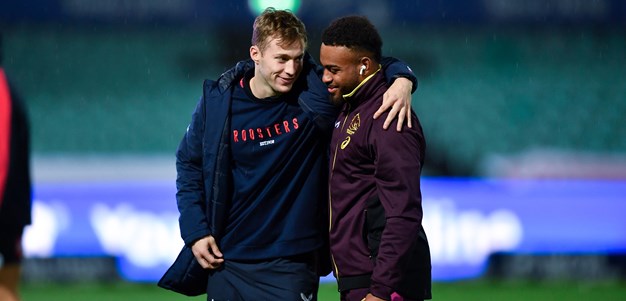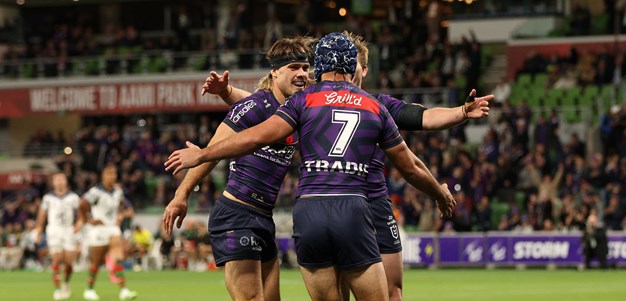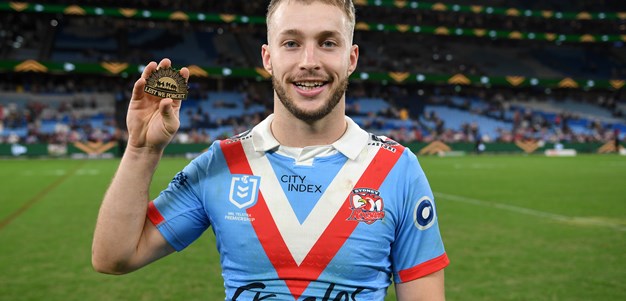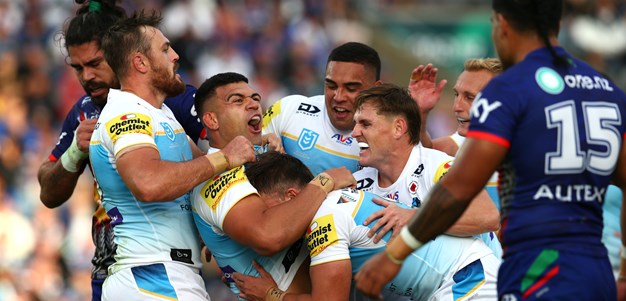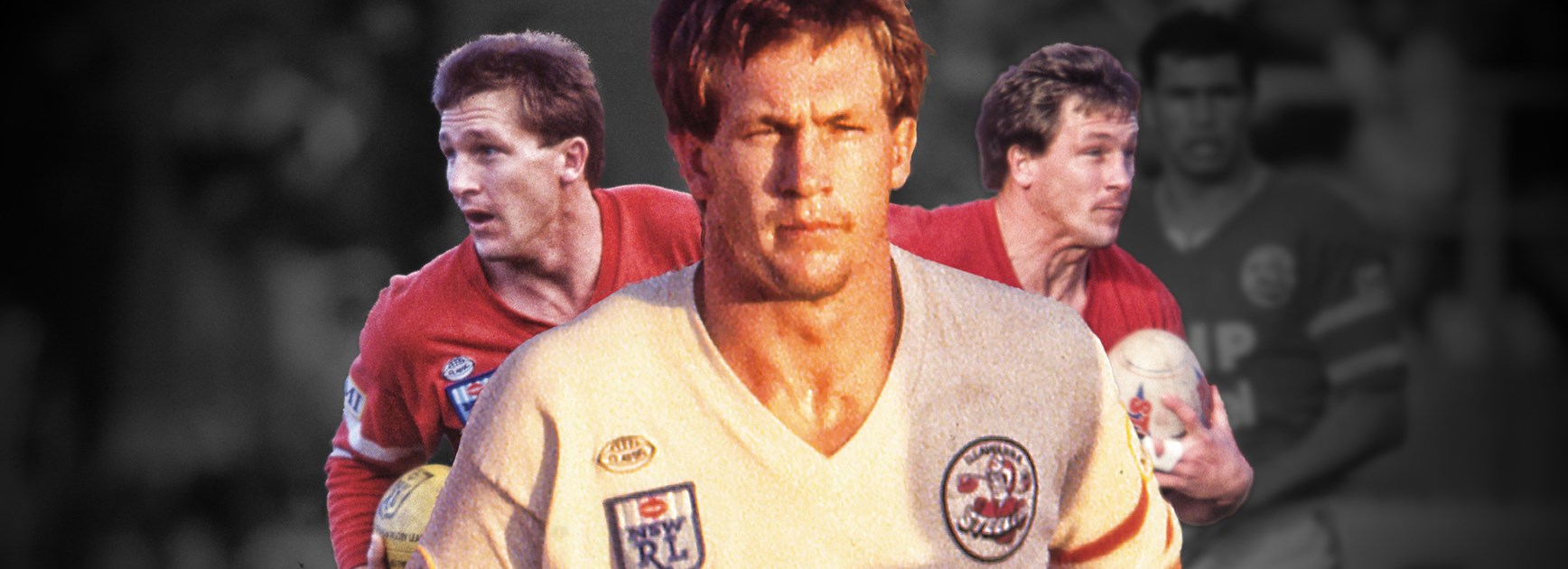
Not many players have an arena named after them - and for that reason Alan McIndoe is especially proud of the Alan McIndoe Oval in his home town of Emerald.
"It hasn't got a grandstand and it has been flooded for the last couple of years, but it is a special place for me and we have plans to upgrade and develop it," McIndoe beams.
Emerald’s most famous son has put plenty back into the game in the local area.
“I do coaching, mentoring ... even refereeing,” McIndoe smiles.
“I do some stuff for FOGS and am trying to help the Central Queensland bid team ... you do what you can and I love still being involved.”
NRL.com has dusted off this Legend Q&A from the Rugby League Week vault, which was originally published in 2011.
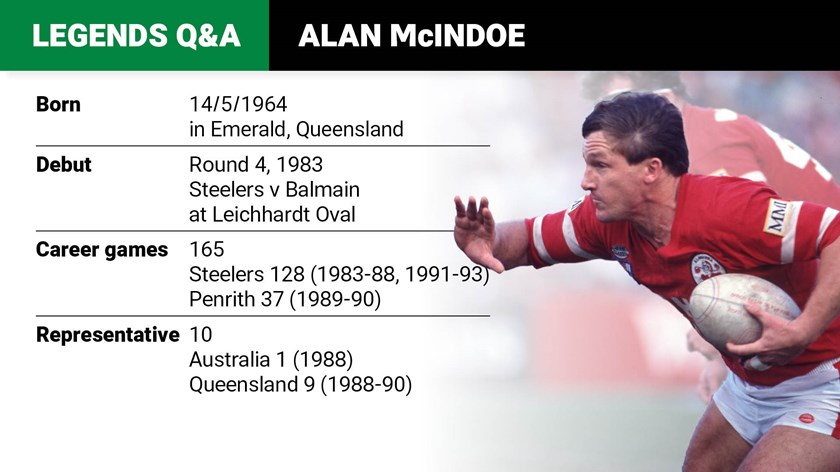
Alan McIndoe
How did a boy from the bush in Central Queensland end up a Steeler?
I was born and raised in Emerald, which had only 3000 people back then, and I’m back here still now. Anyway, I got to play for Queensland under 18s in a curtain raiser to an Origin game and got offers from three or four clubs. All the offers came on the phone - which was difficult because mum and dad didn’t have a telephone at the time. We had to take the calls at our next door neighbour’s house ... which was kind of awkward.
So why Illawarra?
(Club secretary) Bob Millward said he would fly up to meet me and that pretty much clinched it the moment he said that. So we cleared the little local airstrip of kangaroos and cows and he landed in this tiny plane. He was white as a ghost - it was a rough flight and I don’t think he’d ever been in such a small plane. Bob offered me $10,000 and I signed just about on the spot. I had to play one first grade game to get it in my first year, though. I was lucky ... I played five in 1983.
Was it daunting moving to Wollongong?
Even getting there was a major drama. I set off in my little car with no air conditioning in the middle of summer and it took me two days. I got horribly lost when I reached Sydney and my car broke down. I felt abandoned and totally out of my depth. Part of me wanted to turn around then and there and head back home!
And Wollongong itself?
It was like a big city to me, even though it probably wasn’t. There was a massive beach culture and I have never been a beach person. I was also stunned by the amount of drugs people were using. Not so much the players, but at parties and even at home - everywhere I turned, people were into it. I had never seen that back in Emerald and didn’t get involved. Fortunately a few senior players took me under their wing and kept me out of strife. John Dorahy was great - he was like a godfather to me.
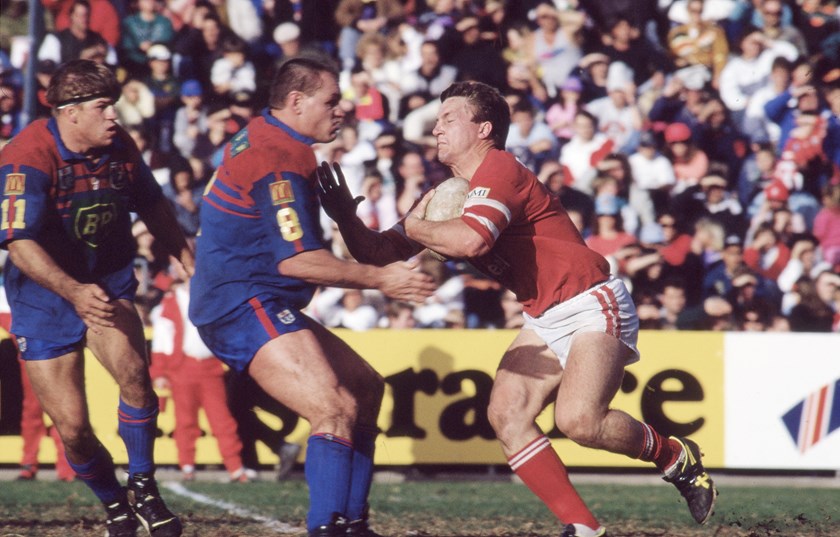
What do you remember of your debut?
We were playing St George and Steve Rogers made a break. I was a lot faster than him and caught him and I remember thinking ‘I’ve got him easy’. I got to him - and he palmed me off and scored under the posts. It was a valuable lesson. Don’t get too cocky. I tried to remember that.
Did you have trouble adjusting to Sydney football?
Look, I never planned to even play first grade. I came down thinking I’d stay for a year, play a few games in the under-23s and go back home. I never even dreamed I could make first grade. So I was surprised more than anything. That first year in those five games I scored four tries, so I fitted in okay. But then I did my knee for the first time - and it still gives me grief now.
It sounds like you had a few issues with self-confidence.
I did ... big time. Even when I played Origin football, part of me thought I didn’t deserve to be there. I would sit there and wonder ‘how could a country boy like me be on the same field as Mal Meninga ... Wally Lewis ... Allan Langer?’ I never really got intimidated by other players - more by my own internal voices. But I learned to deal with it.
Speaking of Origin, you had a pretty fair record, didn’t you?
Nine games for Queensland, eight wins. And I’m still dirty about the one we lost! I keep going back over it in my head and wondering what went wrong. I guess NSW were just up for it on the night.
We had already won the series anyway. We had a sensational backline and playing with Mal, Wally, Alf, Chris Close, Gary Belcher, Peter Jackson, Smokin’ Joe Kilroy ... it doesn’t get any better.
How did your inner demons cope with Origin then?
Origin was intense, no doubt. There was this eerie calm before the storm. You would be sitting in your hotel room, all was quiet and you’d be having a tea and a biscuit trying to stay relaxed, knowing all hell was about to break loose in a few hours.
To me, the highlight was the bus ride and going past the pub on Caxton Street and the passion of the fans. And running out to that noise at Lang Park. Once you got through that, you were all right.
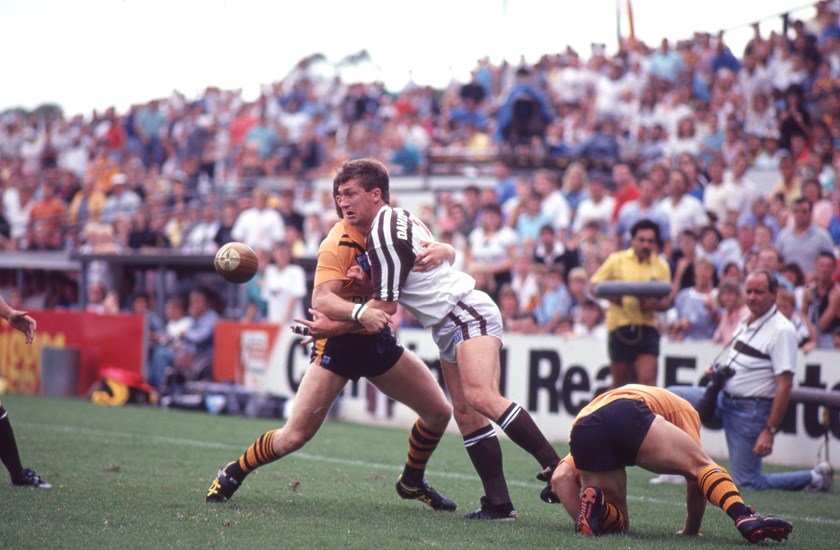
Why did you leave the Steelers for Penrith for two years mid-career?
The Panthers had put a good team together but needed some finishing power on the wing. I never was going to leave Illawarra and said no to (Penrith's) original offer. But then they came back with a really good offer and I signed. The first year we had old Ronny Willey as coach.
I hated training and Ron didn’t worry too much about training so we got on great. The next year Gus (Phil Gould) came in and everything changed. We trained hard ... and learned a lot about footy, and ourselves.
And you got all the way to the grand final?
Yes ... and lost. We ran into a very good Canberra side. But we gave them a good fight. I really had a go that day, too, which was unlike me. I’d normally be happy to wait on the wing for things to happen - that day I got in there and went after the ball, trying to make things happen.
Does that game still haunt you?
Losing was about the worst feeling of my life. I was gutted. We all were. Mind you, I think back to the grand final breakfast a few days before the big game and I remember walking into the function room at 7am with a shocking hangover. I have this vague memory of polishing off 14 bottles of Moet the night before with the boys. So we could probably could have been a bit more professional about it. Penrith went on to win it the next year - but by then I’d gone back to Illawarra. I’d agreed to a new deal at Penrith, but it fell through for reasons I’d prefer not to discuss. Such is life.
And you parted with the Steelers in somewhat controversial circumstances?
I love Illawarra - it will always be my second home but we had a disagreement in my final season in 1993. I got into financial planning and one of my teammates was Dale Fritz. We sat down and he told me how much money he was on ... he was a good player and I told him he could do better and to put feelers out.
Another coach found out - and told the Steelers and the shit hit the fan. They wanted to sack me straight away. In the end, they stripped me of the club captaincy, which hurt.
But we resolved it and I left on good terms. I had two years as captain-coach of Tumut and then gave it away.
Despite nine Origins and topping the try-scoring chart for years, you never played Test football. Does that upset you?
I got one game for Australia - an exhibition against the Rest of the World. And there was a storm in the media because I beat (Canberra’s) John Ferguson for that!
I thought my form warranted selection, especially in 1990 when I would have loved to go on the Kangaroo tour. In the end, they took (halfback) Greg Alexander and played him on the wing.That disappointed me, but I never really got on with the selectors and that probably didn’t help my cause.
